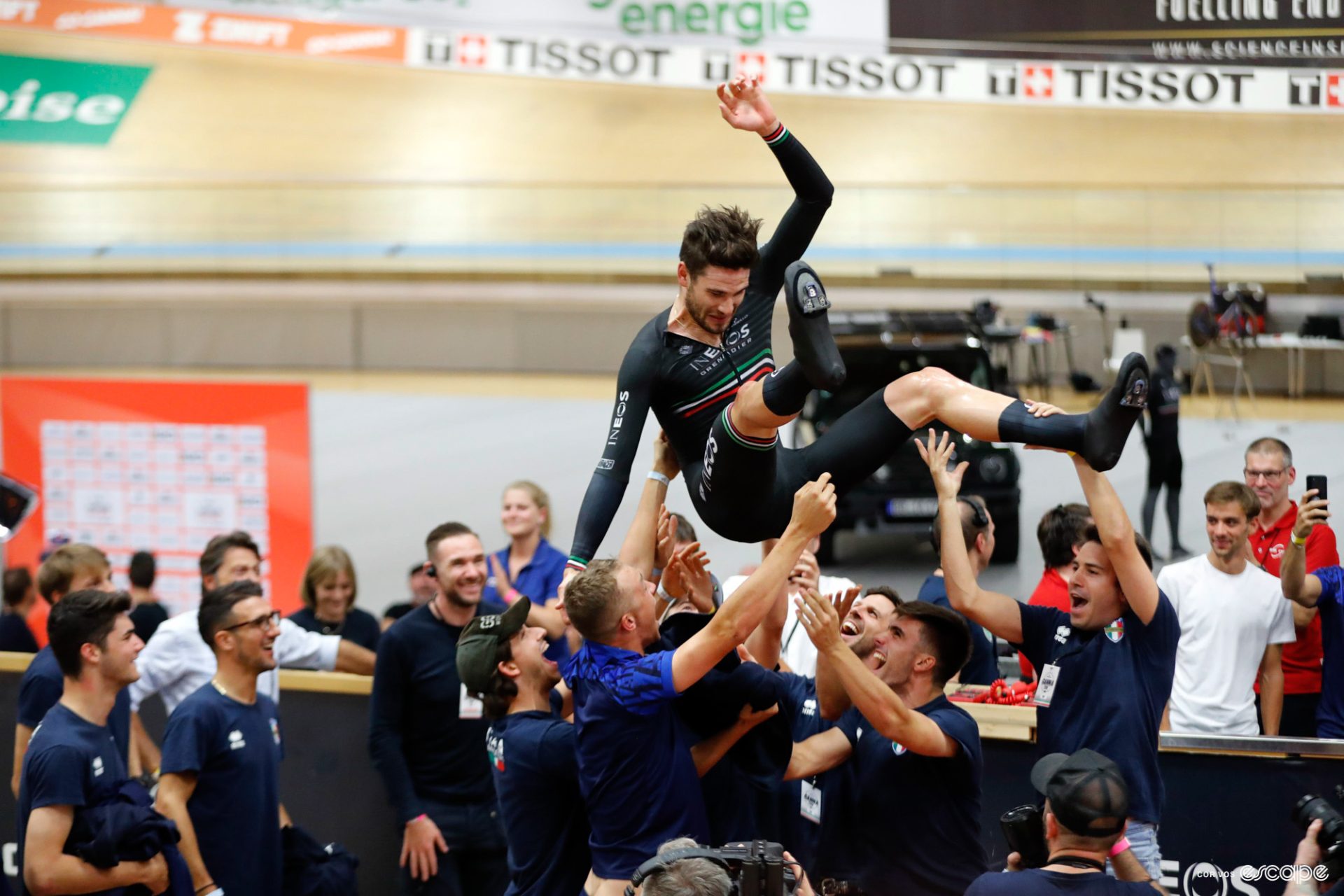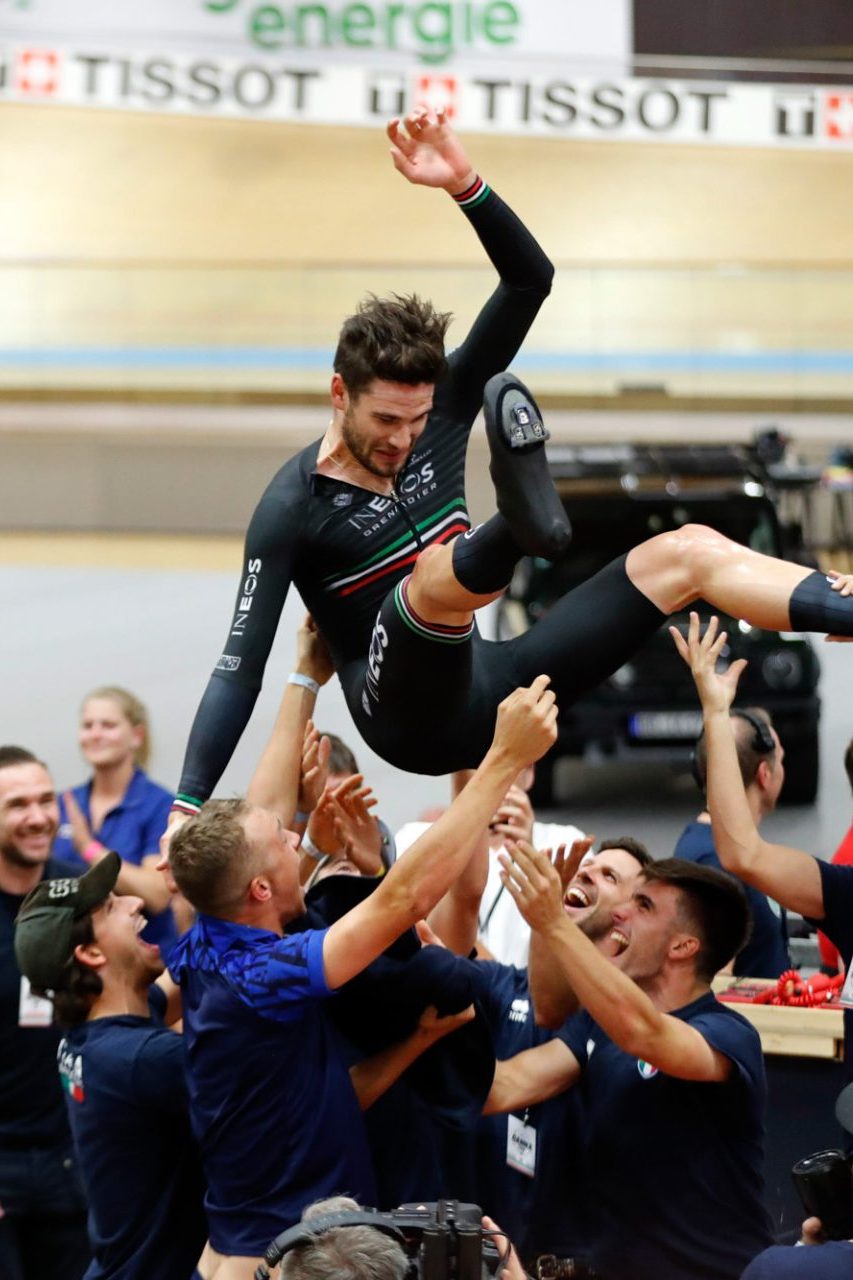There will be a recurring question in our new Performance Process podcast: After listening to this show, how much faster can we go?
Fitting, then, that the guest for our first episode can answer this more accurately than almost anybody else in cycling. Jonny Wale can make an already-elite athlete 1.5 to 2 kilometres faster over an hour. How do we know? He’s been involved in 10 successful hour record attempts and is the coach of former world record holder Dan Bigham, who he helped improve by – you guessed it – about 1.5 kilometres over an hour. He also helped optimize current hour-record-holder Filippo Ganna’s attempt.
Wale is an hour record specialist, but his processes apply much more broadly. He sought failure so he could learn from it, solved for those problems, and optimized both training and race-day setup for his athletes. The way Wale breaks down this singular event, asking new questions and finding new answers, can provide lessons for us all.
As always, full episodes of Performance Process are for Escape Collective members only. You can listen by signing up here, after which you’ll receive an email with instructions for adding the member-only feed to your pod app of choice. We’ve put roughly half of the first episode up for free and you can listen to that below.
For a taste, we’ve pulled out a few highlights of the conversation:
What is your secret to the hour record?
Jonny Wale: The secret is we don’t really know the secret, but we’re willing to go find out.
Historically, across hour records, there’s a great misunderstanding of what the actual demands of the hour record are.
The first step is understanding the problem(s).
We’ve done a number of sensored-up hour records. Basically what we do is we take you to the track, we make you do an hour record, but we sort of shower you in sports science, if you will. And it kind of started where we were like ‘What can we measure? What’s actually useful?’ We had muscle ENG, core temp, Biomek sensors, you know, the works. If it was published in some sort of sport science paper, we tried to put it on you. And there’s some some funny photos floating around, putting sensors up all sorts of holes of Dan.
What we originally thought was, if we just throw enough stuff on the wall, we’ll find out what where does the physiology breakdown? And how can we then write a training plan to stop that breaking down?
Thirty minutes is not half an hour
This was like the real discovery, which was just everyone falls apart at 40 minutes. And we’re just like, what is happening? Because there’s a high failure rate in the hour record. You’ve got really elite-level guys spending a lot of cash and spending an entire year focusing on the record. Yet, they’re failing. People aren’t stupid – there’s something in their calculations and how they’re assessing performance, and then how that impacts the actual performance. There is a performance gap there.
A key expression that we have is ‘30 minutes isn’t half an hour,’ which is like, everyone’s physiology starts to break down. There’s always this crisis point around 35 to 40 minutes-ish where stuff goes south. What we’ve learned from breaking down the event and analyzing everything is that physiology shifts. How you pedal shifts, where your core temperature sits shifts, where your breathing characteristics occur, they shift.
You’re warming up too much
Ultimately, if you look at the research of warmups, if we’re purely talking a 20-minute-plus race, a warm up doesn’t really do anything. Ultimately, it doesn’t matter what you do. It’s more important to not do too much. But getting too hot, and getting too fatigued in the warm up, that’s going to make you fail. So it’s kind of as little as you can get away with.
Want more?
This is just a small taste of the hour-long chat with Wale. To listen to the whole episode, you’ll need to be a member of Escape Collective.
If you’re already a member, head to this page to get access to Performance Process and the rest of our member-only pods.
If you’re not a member, you can join here. Every membership level gets access to the member pods. You’ll receive an email with instructions for adding them to your preferred podcast app after you sign up.
What did you think of this story?

